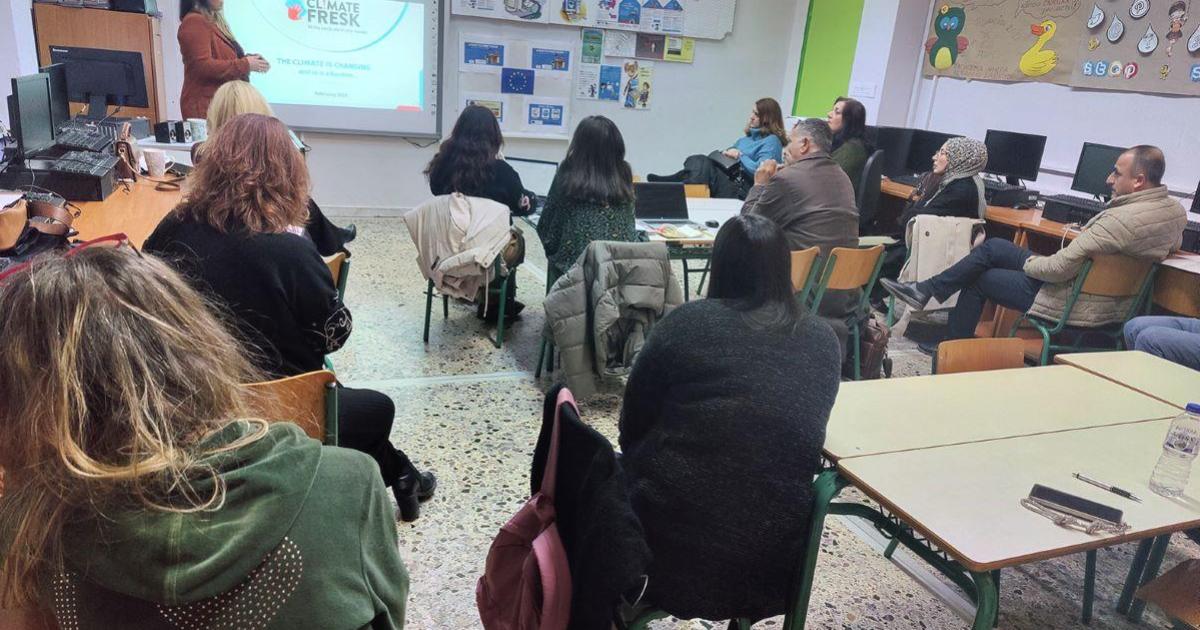
Mikiel Anton Vassalli College spearheads initiative in digital education
The Mikiel Anton Vassalli College (MAVC), along with its MAVC Malta School of Art in Valletta, coordinated a European-funded venture dedicated to enhancing digital competencies and methodologies in education.
Through the Erasmus+ KA210 programme, MAVC spearheaded the ‘DigiTech Methods’ project, a two-year initiative forged in partnership with Dimotiko Scholeio Plateos Imathias in Greece and Turkan Dereli Ilkokulu in Turkey, respectively.
This dynamic partnership aimed to equip educators from all three institutions with the latest digital technologies and innovative teaching methodologies, particularly within visual art education. The project’s objectives were realised through the development of three comprehensive training modules.
Victor Galea, head of the College Network, underscored the project’s alignment with national educational objectives.
“This training was very much in line with the ambitions and targets of the Malta New Education Strategy 2024-30, which placed significant emphasis on the integration of digital tools to enhance the educational experience,” he said. “This commitment was further detailed in the accompanying Digital Education Strategy 2024-2030, which outlined specific measures to embed digital competencies across all levels of education.”
 Developing mBOT lesson content.
Developing mBOT lesson content.The project’s collaborative spirit was evident from its inception, with the first training programme held in Malta in November. This initial programme, coordinated by the MAVC School of Art in collaboration with The Directorate for Digital Literacy & Transversal Skills (DDLTS), focused on fundamental elements such as basic terminology, digital tools, digital security and innovative, artistic and educational resources designed to enhance classroom teaching and learning.
The head of the School of Art, Roderick Camilleri, said that the Malta School of Art educators collaborated with experts from The Directorate for Digital Literacy and Transversal Skills (DDLTS) to create an innovative programme that blends digital technology with artistic education.
Building on this initial phase, the Erasmus programme continued with a very successful second training session in Greece in February. There, educators explored and experimented with cutting-edge technologies and pedagogical approaches presented by leading experts.
Discussions and explorations centred on topics such as ‘HyperDocs’, the flipped classroom model, other applications integrating AI resources and other innovative programmes. Importantly, the focus extended beyond mere technical proficiency to encompass effective pedagogical methods for seamlessly integrating these tools into classroom instruction.
The final phase of this enriching exchange took place in Izmit, Turkey, in March. Educators from Malta and Greece joined their Turkish colleagues for a training event.
 A student engagement field visit at Kocaeli Science Centre, Turkey.
A student engagement field visit at Kocaeli Science Centre, Turkey.A key outcome of the training in Turkey was the development, implementation and evaluation of a new curriculum module for each participating school, titled ‘Digital Citizenship and Leadership in Education’. This module was designed to empower teachers with the necessary knowledge and skills to foster responsible digital practices and effective digital leadership within their classrooms.
Topics covered included digital ethics, online safety, classroom management using digital tools and interactive teaching strategies. Participants explored practical applications of Web 2.0 tools, gamification and artistic digital tools to boost student engagement and improve classroom dynamics.
This module provided not only technical knowledge but also practical guidance on its pedagogical application through scenario-based exercises, collaborative discussions for best practice-sharing, digital tool integration tasks and quizzes with reflection activities.
The participating teachers received a certificate of achievement, acknowledging their enhanced ability to implement the principles of digital citizenship and technology-driven instructional strategies within their respective schools.
The ‘DigiTech Methods’ project, coordinated by the Mikiel Anton Vassalli College and actively involving the Malta School of Art alongside its Greek and Turkish partners, stood as a significant contribution to fostering digital literacy and innovation which proved instrumental for the educators involved, equipping them with new innovative tools, and also helping them to train other educators from their respective institutions to develop their digital and technology skills.

